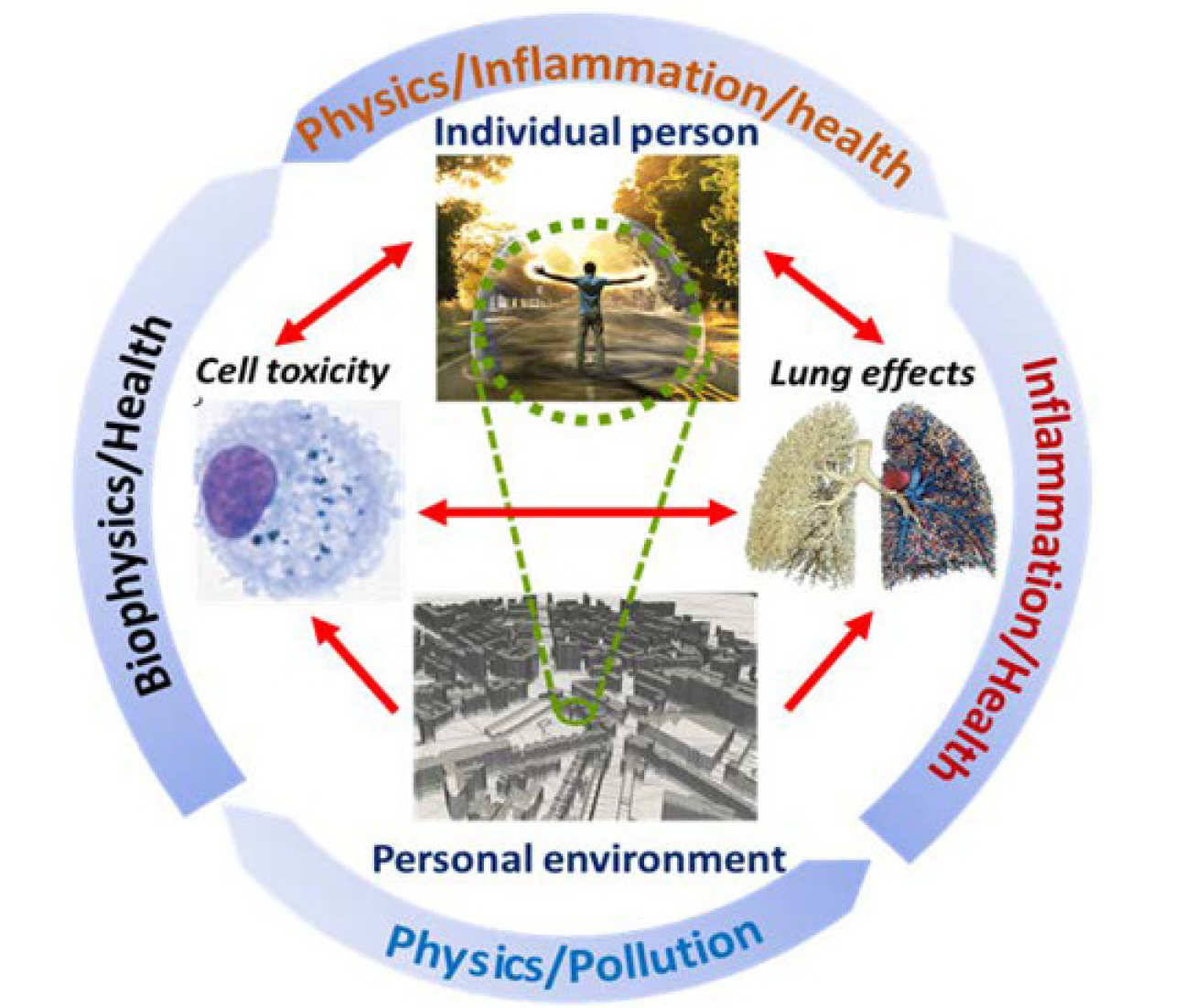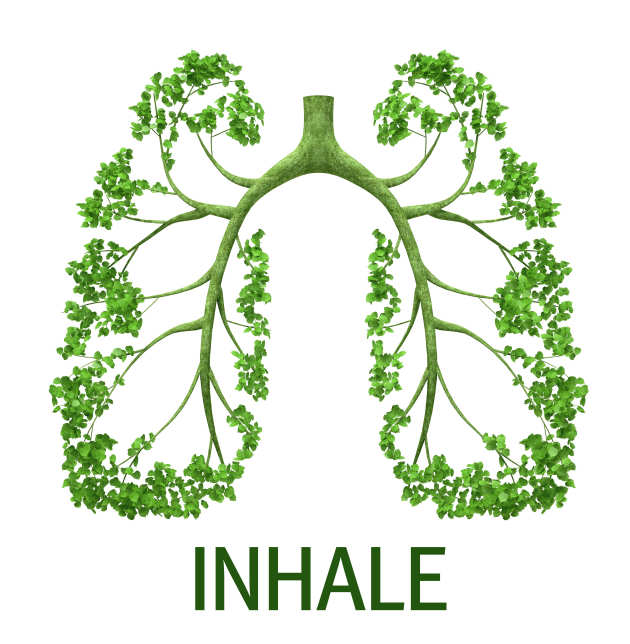Health assessment across biological length scales for personal pollution exposure and its mitigation

INHALE will assess the impact of air pollution on personal health in urban environments.
This multidisciplinary research project will develop a physics based, multi-scale approach across biological length scales from the cell, lung, person up to the neighbourhood scale.

The research involves integrated modelling of air pollution and air-flow. It will look at the effect of interventions such as roadside hedges or medication for at-risk people such as asthmatics. INHALE will examine pollutants’ potential for cell and tissue damage, and how this relates to health outcomes.
By modelling air pollution at neighbourhood scale and representing interventions to assess reduced exposure, we will gain an understanding of how green infrastructure can mitigate pollution"
Professor Christopher Pain
Department of Earth Science and Engineering, Imperial College London
We will use modelling to predict the outcomes of cell fate, so that we can back propagate biological potential of pollution particles through to the individual and into the neighbourhood scale"
Fan Chung
Professor of Respiratory Medicine, National Heart & Lung Institute, Imperial College London
INHALE Research Project videos

INHALE to assess the impact of pollution on personal health
The INHALE research project assesses impacts of pollution on personal health in urban environments.

How does air pollution affect our health?
INHALE conducts research to assess air pollution impacts on personal health in urban environments.

INHALE Open Meeting
Research talks about assessing air pollution impacts on personal health in urban environments.
Research talks from the INHALE Open Meeting on 25th May 2023 that discuss the ways in which the INHALE project is assessing air pollution impacts on personal health in urban environments.
Session 1:
Measuring personal exposure to air pollution: Towards quantifying personal risks
Speaker: Professor D K Arvind, Centre for Speckled Computing, School of Infomatics, University of Edinburgh.
Session 2:
Constituents of air pollution: What makes the mixtures toxic?
Speaker: Professor Alexandra E. Porter, Department of Materials, Imperial College London.
Session 3:
Greenery in Urban Areas: A useful mitigating approach
Speaker: Professor Prashant Kumar, Institute for Sustainability, University of Surrey.
Session 4:
Physics+Data Informed AI modelling for air pollution forecasting
Speaker: Dr Rossella Arcucci, Department of Earth Science and Engineering, Imperial College London.
Micro-environment modelling of thermal dynamics and green infrastructures
Speaker: Dr Fangxin Fang, Department of Earth Science and Engineering, Imperial College London.
Session 5: Discussion
How can individuals mitigate the effects of pollution on health at a personal level?
Chairs: Professor Christopher Pain and Professor Fan Chung
Research Participants
If you are interested in getting involved in this research, please visit the Research Participants page for more information.
Funder

Contact
INHALE Project Manager, Claire Dilliway
Department of Earth Sciences and Engineering
Imperial College London
South Kensington, London SW7 2BP